
Culture
11:01, 03-Mar-2018
Jingpo ethnic minority celebrates Munao Zongge Festival
By Yang Jinghao, Luo Caiwen
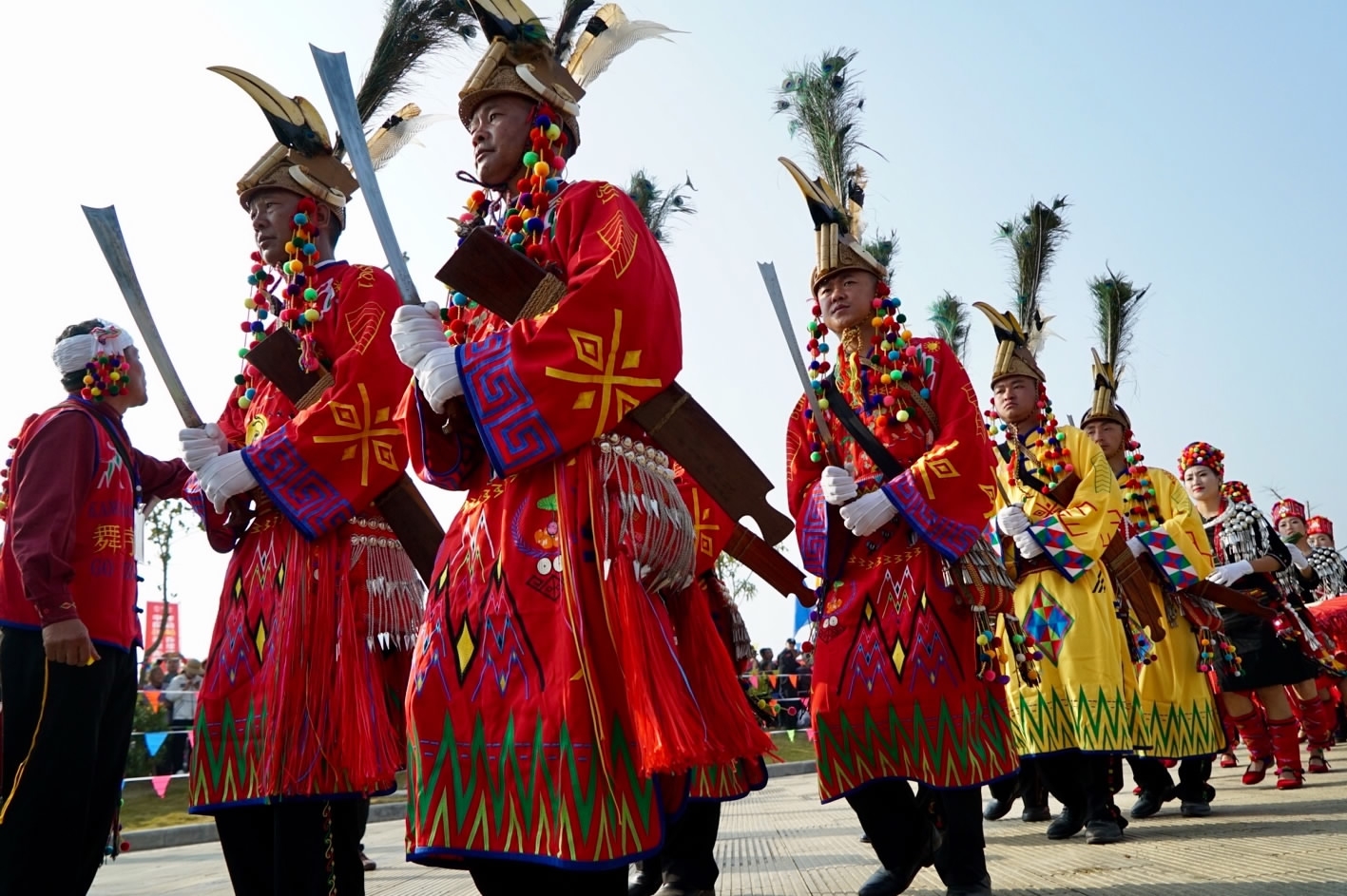
While most of the rest of China celebrates the traditional Lantern Festival, people from the Jingpo ethnic group, who mainly reside in southwest China’s Yunnan Province, observe their grand festival, Munao Zongge, their most important event of the year.
Following a traditional sacrificial ceremony and a special ritual to crown the leading dancers of the carnival-like fest known as “naoshuang” and “naoba,” people from the Jingpo and some other ethnic groups inhabiting Dehong, the westernmost prefecture of Yunnan, began the music pageant on Friday.
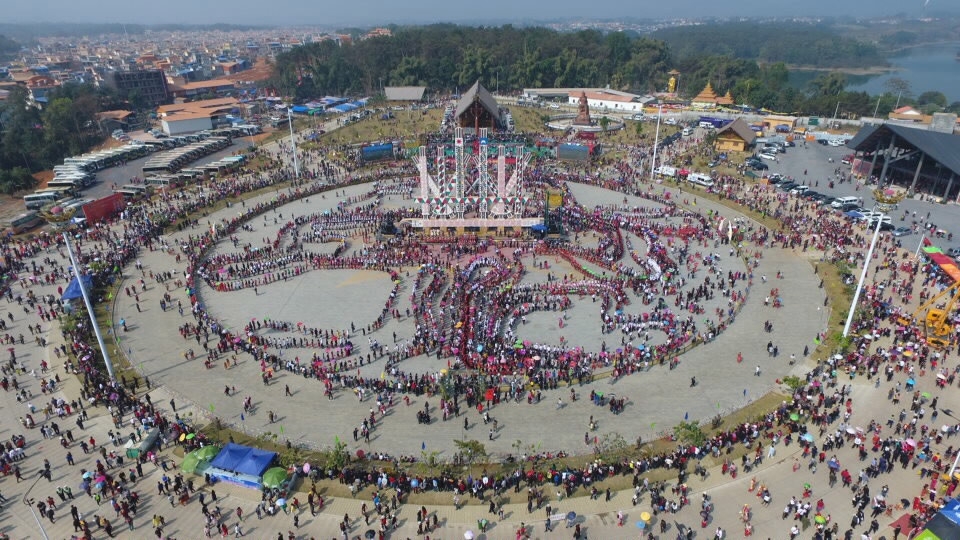
A bird’s-eye view of the carnival. /courtesy of Yang Pingcai
A bird’s-eye view of the carnival. /courtesy of Yang Pingcai
Meaning “dance in mass,” the Munao Zongge Festival is the most important activity for the Jingpo people, during which time they pray for a prosperous year with a good harvest. It was dubbed “dance in paradise” and was listed as one of China’s intangible cultural heritages in 2006.
Each year on the special day, they gather to dance to the strong drumbeats and folk music in a special formation which is thought to indicate their ancestors’ migration routes from the northwestern plateau. No matter how many people join in the carnival, the formation will never turn messy.
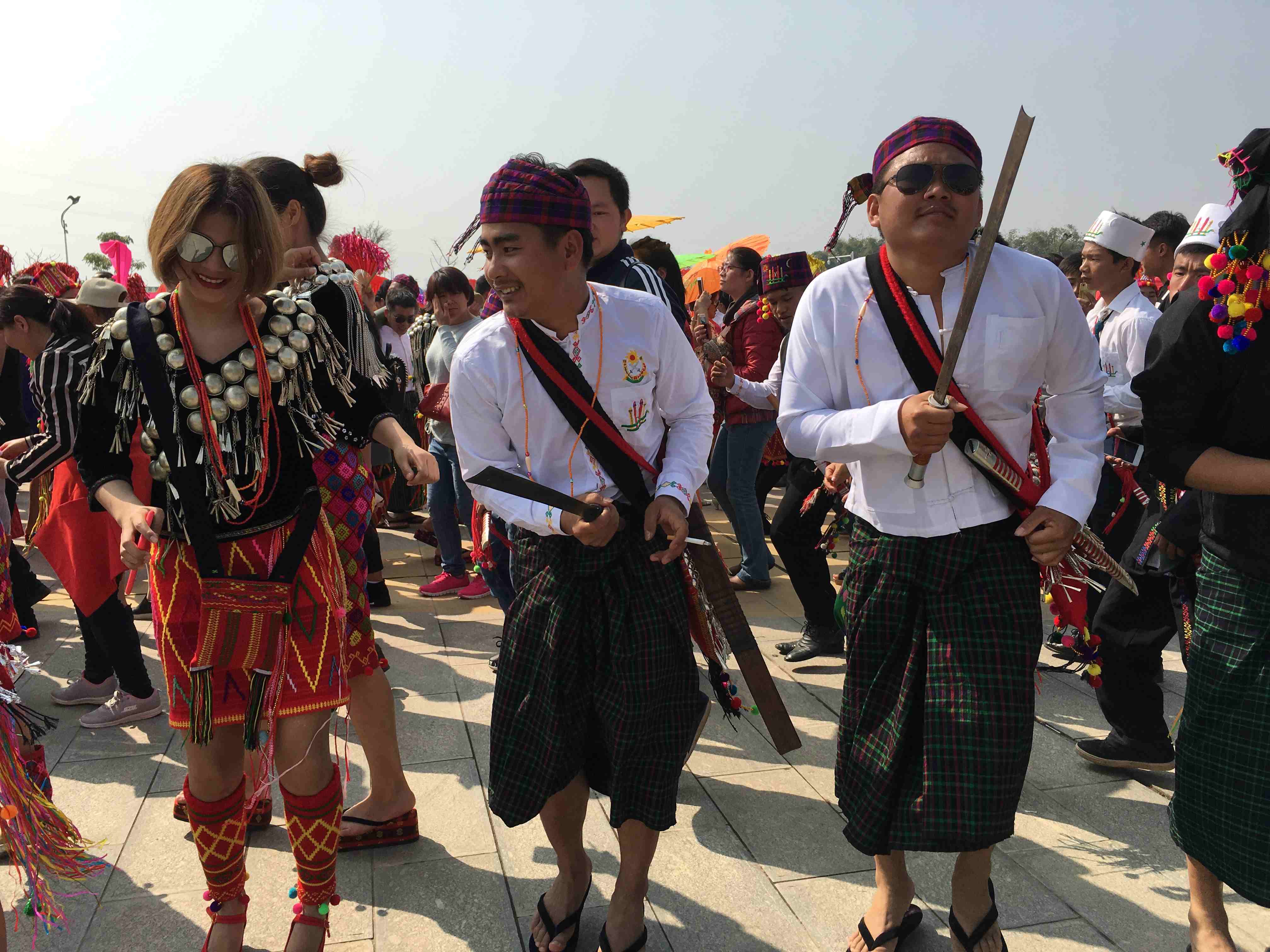
People dressed in traditional costumes dancing. /CGTN Photo
People dressed in traditional costumes dancing. /CGTN Photo
The Jingpo people dress in their exquisitely made costumes. The dresses of women are usually decorated with an assortment of silver ornaments, while men wield big swords or spears as well as bows and arrows to demonstrate their old tradition of make a living by hunting.
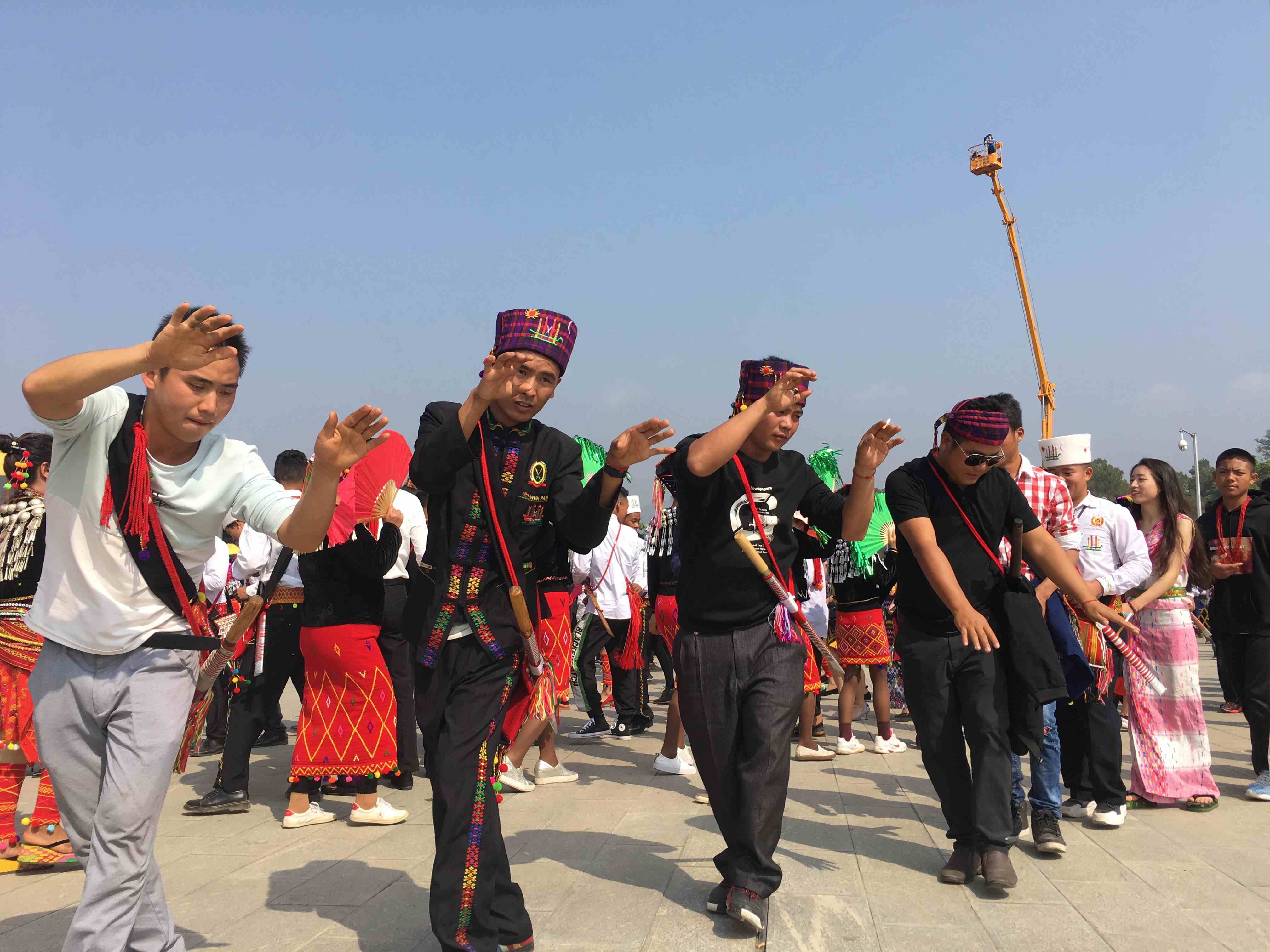
Dance to the strong drumbeat: Everybody can join the dancing party at any time when it is ongoing. /CGTN Photo
Dance to the strong drumbeat: Everybody can join the dancing party at any time when it is ongoing. /CGTN Photo
This year, ethnic groups from Taiwan, such as the Amis, were invited to join the big dancing party.
“Such an exchange of different traditional cultures is very important. We will bring the precious experience back to our tribe in Taiwan,” Su Jinxiong, a participant from Taiwan, told CGTN.
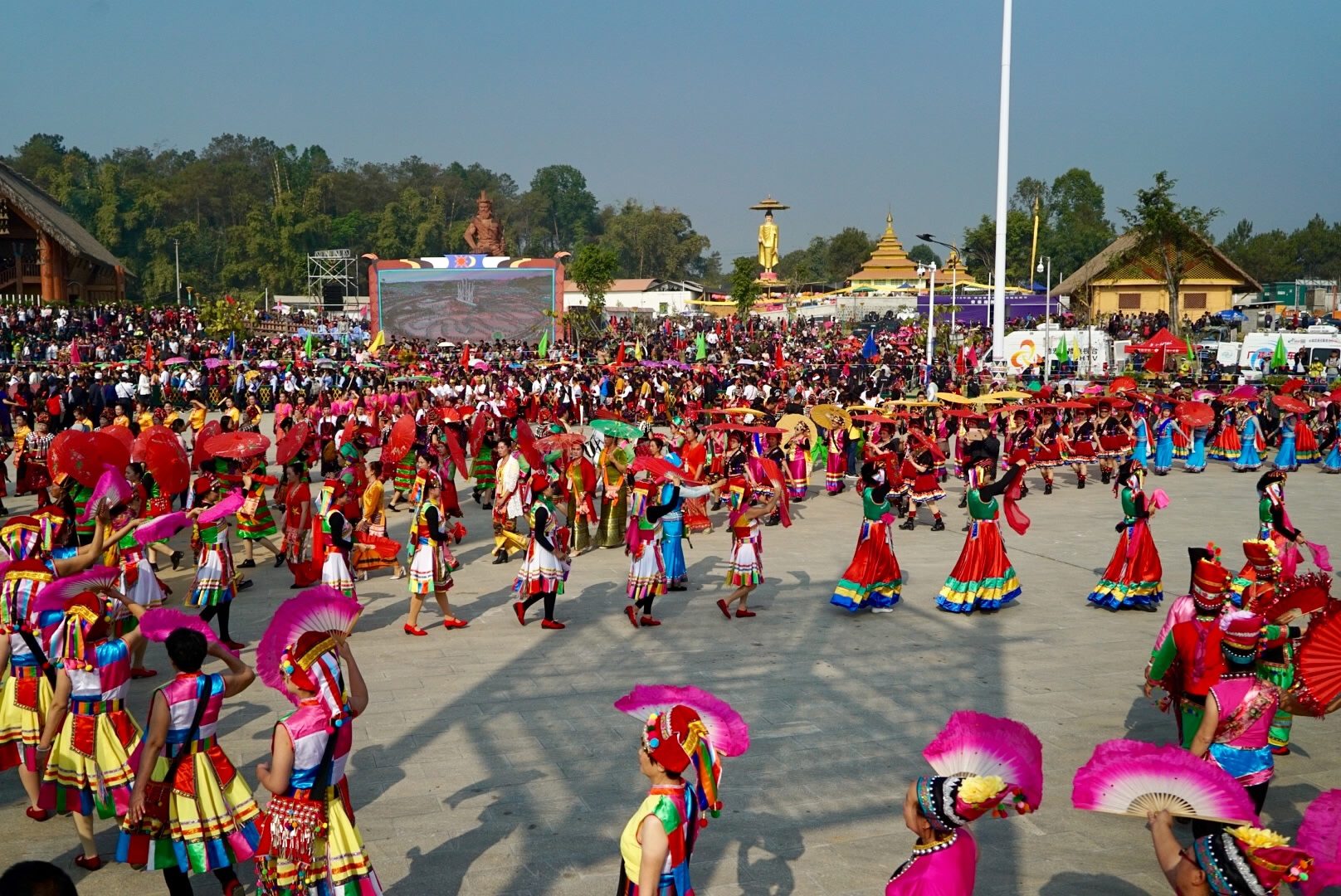
People from other ethnic groups participate in the Munao Zongge Festival. /courtesy of Zhang Yongqiang
People from other ethnic groups participate in the Munao Zongge Festival. /courtesy of Zhang Yongqiang
Dehong shares a long border with Myanmar stretching as long as some 500 kilometers. A number of Jingpo people from across the border, known as Kachin in Burmese, also participated in the grand event.
“I’m a singer from Myanmar. This is my third time to participate in the Munao Zonge festival in Dehong. I’m so glad and I hope I can come back again,” said Jet San Htun.
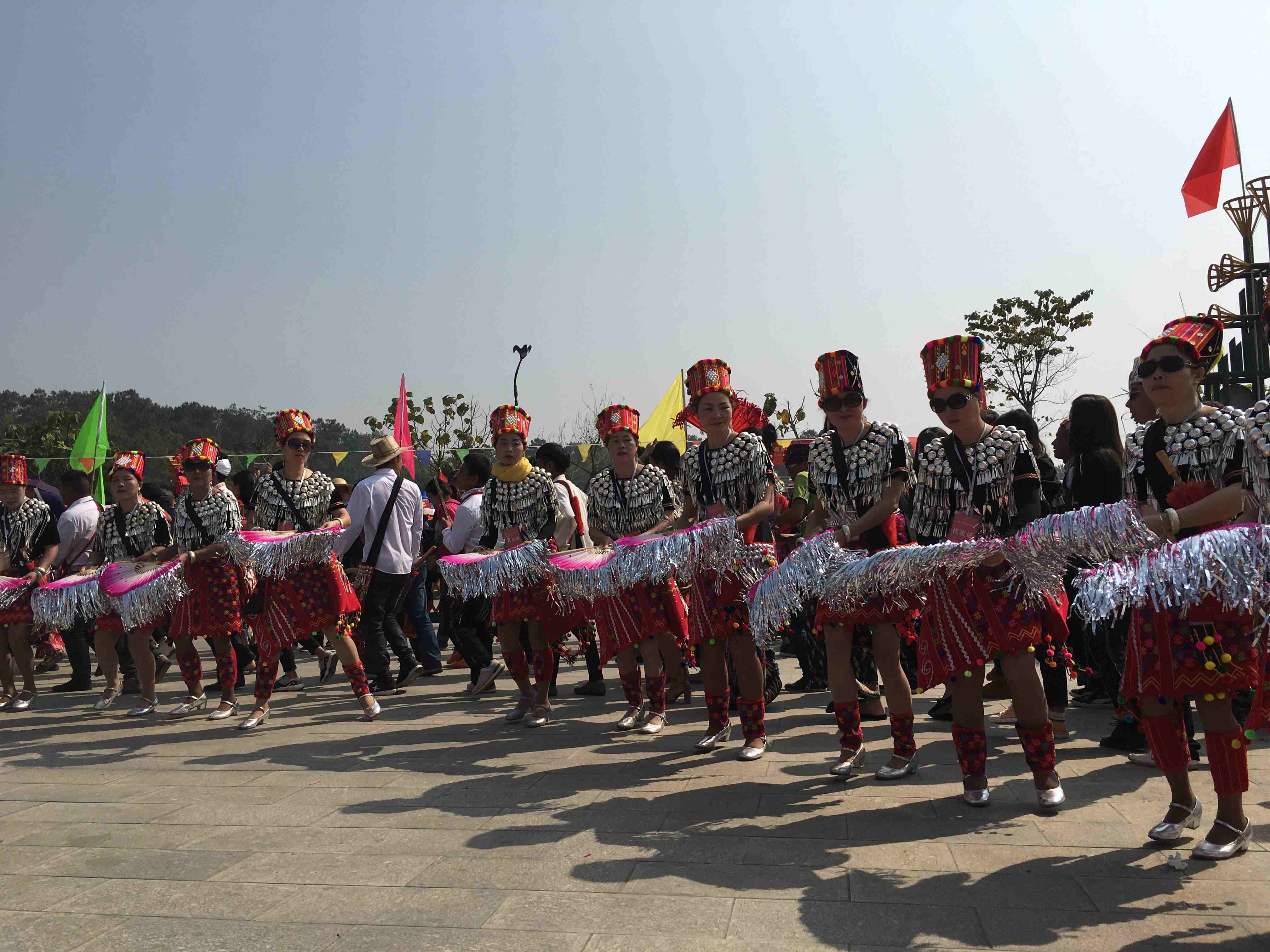
A group of women dressed in Jingpo costume. /CGTN Photo
A group of women dressed in Jingpo costume. /CGTN Photo
There are approximately 150,000 Jingpo people in China, according to the census in 2010. They are distinctive when it comes to their costume, diet and festivals, among other cultural aspects. Xu Liehong, a 33-year-old Jingpo man, told CGTN that he hopes their culture and traditions can be preserved and inherited.
“We Jingpo people are known for our diligence, bravery and hospitality, and I hope these characters can be passed on to the younger generations,” he added.

SITEMAP
Copyright © 2018 CGTN. Beijing ICP prepared NO.16065310-3
Copyright © 2018 CGTN. Beijing ICP prepared NO.16065310-3